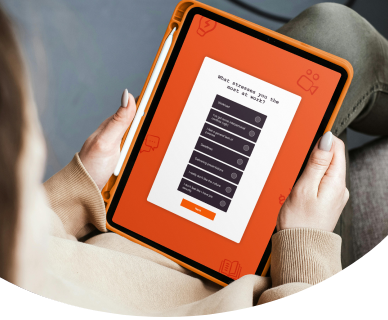The conference room energy shifts the moment HR announces it: one senior position, eight qualified candidates. Suddenly, your lunch buddy or work spouse becomes your rival. That collaborative project you were excited about? Now it’s a showcase where every contribution gets silently scored. Coffee conversations turn into intelligence-gathering missions. Everyone pretends nothing’s changed, but everyone knows everything has.
It’s professional Hunger Games with better lighting and dental coverage.
“How do I manage my relationship with peers who might be competing for the same promotion?” An Optimism Library subscriber sent us this question after finding themselves in this situation. So we took it to Simon, expecting strategic advice about standing out or playing politics. Instead, he referenced a baking show.
“I think that The Great British Baking Show, The Great British Bake Off, is the model for how we should compete,” Simon said.
Wait, what? The show where contestants share ingredients mid-crisis and help each other troubleshoot collapsing cakes? The one where competitors literally assist their rivals?
“Every week somebody gets voted off the island,” Simon said. “There is a winner declared at the end.” Yet despite the high stakes, “they help each other.”
This isn’t just feel-good TV magic. Simon believes it’s the secret to navigating workplace competition.
The Counterintuitive Strategy
“If you’re competing with somebody for the same promotion, then help them. I know it sounds strange and counterintuitive, right?” Simon said.
He illustrated this with actors at auditions, who typically “come in and they all scowl at each other” and “maybe they sabotage each other, cause they see that they’re in competition.”
But Simon advocates for the opposite approach: “The person who comes in who’s like, ‘Hey, really supportive of somebody else, you got this, you’re better for this role than I am,’ helps them read their lines, gives them good notes.”
Why This Actually Works
When you help your competition, several things happen:
“At the end of the day, that person’s confidence is way up, that person’s stress level is way down,” Simon said. “Because they’ve let go of the outcome and they’re in the moment, the odds are their performance is going to be better.”
The benefits extend to you too: “The more you actually help other people, your stress goes down. The more you help other people, your confidence goes up, the more you’re a team player.”
Reality Check on Workplace Promotions
Simon offers perspective on how promotions actually work: “Unless it’s a running race, it’s not always a meritocracy anyway. We don’t know if somebody’s brother-in-law is the son of the… who knows?”
This isn’t cynicism—it’s freedom. “Sometimes the best person does get the promotion and sometimes it doesn’t,” he said. Accepting this allows you to focus on what you can control.
The Essential Mindset
Here’s the crucial part: “You can’t do it to get the promotion. You do it to be a good person and help somebody else,” Simon said.
The approach only works when genuine. “Showing up as the best version of yourself, being a team player and helping somebody else rise” paradoxically “increases your odds” if the system is merit-based.
Putting It Into Practice
Simon recommends starting small: “Try it once in a small scale. Trust me, it actually really works.”
“I have always found in these things that a sense of humor is the best way to go,” he said. Maintaining perspective helps—wish everyone good luck and remember that careers rarely follow straight lines.
The bottom line? “Even when we’re helping each other, the person who deserves it will get the promotion and the person who doesn’t deserve it won’t,” Simon said.
By focusing on collaboration over competition, you often end up performing better while building relationships that last beyond any single promotion cycle.
Facing a challenge at work? Maybe Simon can help. As an Optimism Library subscriber, you’re invited to our exclusive quarterly Live Q&A sessions where you can ask Simon your questions directly.












